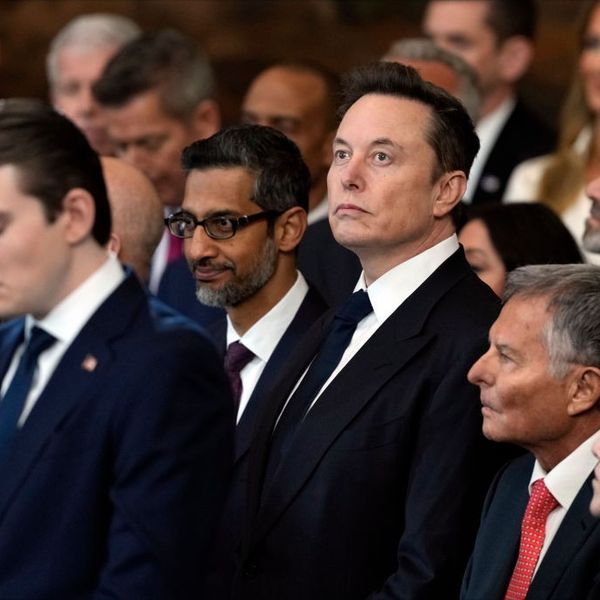What's the largest personal stake a U.S. president has ever had in legislation he signed into law? Whatever it was, it'll be dwarfed by what Donald Trump's signature will be worth -- to himself -- if Congress passes his proposed tax plan and puts it on his desk.
If that happens, Trump will be effectively cutting himself a check from the U.S. Treasury for several billion dollars.
Call me cynical, but it seems that's exactly what Trump has in mind. His plan just fits his tax situation -- or what we know of it, without access to his tax returns -- too perfectly.
The president's tax proposal eliminates two taxes that mostly benefit the wealthy, and cuts a third tax roughly in half. That would bestow a windfall worth billions on the Trump family.
First, there's the elimination of the alternative minimum tax, or AMT.
The AMT applies to taxpayers whose income tax liability otherwise would be reduced excessively by certain deductions, including deductions commonly claimed by real estate owners like Trump. It's like an alternative tax system in which the rates are lower but fewer deductions are allowed.
But the AMT increased Trump's tax liability that year by over $31 million. Had Trump's tax plan been in effect in 2005, it would've saved him that $31 million.
Still, that's chump change in comparison to the tax windfall he hopes to bestow upon himself by cutting the top tax rate on the bulk of his income by more than half, from nearly 40 percent to 15.
We're not talking about the corporate tax rate here. Trump could reap a tidy personal benefit from slashing the corporate income tax too, but the far bigger prize in his plan is its treatment of income from businesses that don't pay corporate taxes.
Under current law, the income of those businesses is taxed to their owners at individual income tax rates. Under Trump's plan, income from those businesses would receive preferential tax treatment, with a maximum tax rate of 15 percent.
That would be the final act in turning our nation's tax policy on its head.
In 1980, before Ronald Reagan's election, the maximum rate on workers' wages -- earned income -- was less than the maximum rate applicable to all other types of income except long-term capital gains.
Under Trump's tax plan, the maximum tax rate workers pay, after accounting for employment taxes, will be higher than the rate applicable to any other type of income.
That means no matter how Trump invests his billions -- in real estate, bonds, stocks, business ventures, etc. -- the income he generates would be taxed at a rate lower than what workers pay on their wages.
Trump's preferential rate for business income is unprecedented. Is it a coincidence that the first politician to propose it just happens to be a real estate magnate with interests in literally hundreds of unincorporated businesses?
The biggest tax windfall Trump hopes to secure for himself, however, is one he won't live to enjoy. I'm referring to the estate tax, of course -- a federal levy on estates worth over $5.5 million for individuals.
Trump's plan would eliminate that tax, no matter how large the estate. For Trump, that would mean as much as $1.4 billion on an estate estimated by Forbes at $3.5 billion.
The bottom line: If Trump's tax plan passes, he'll have secured for himself billions in tax benefits in less than a year as president. Not bad work if you can get it, huh?



